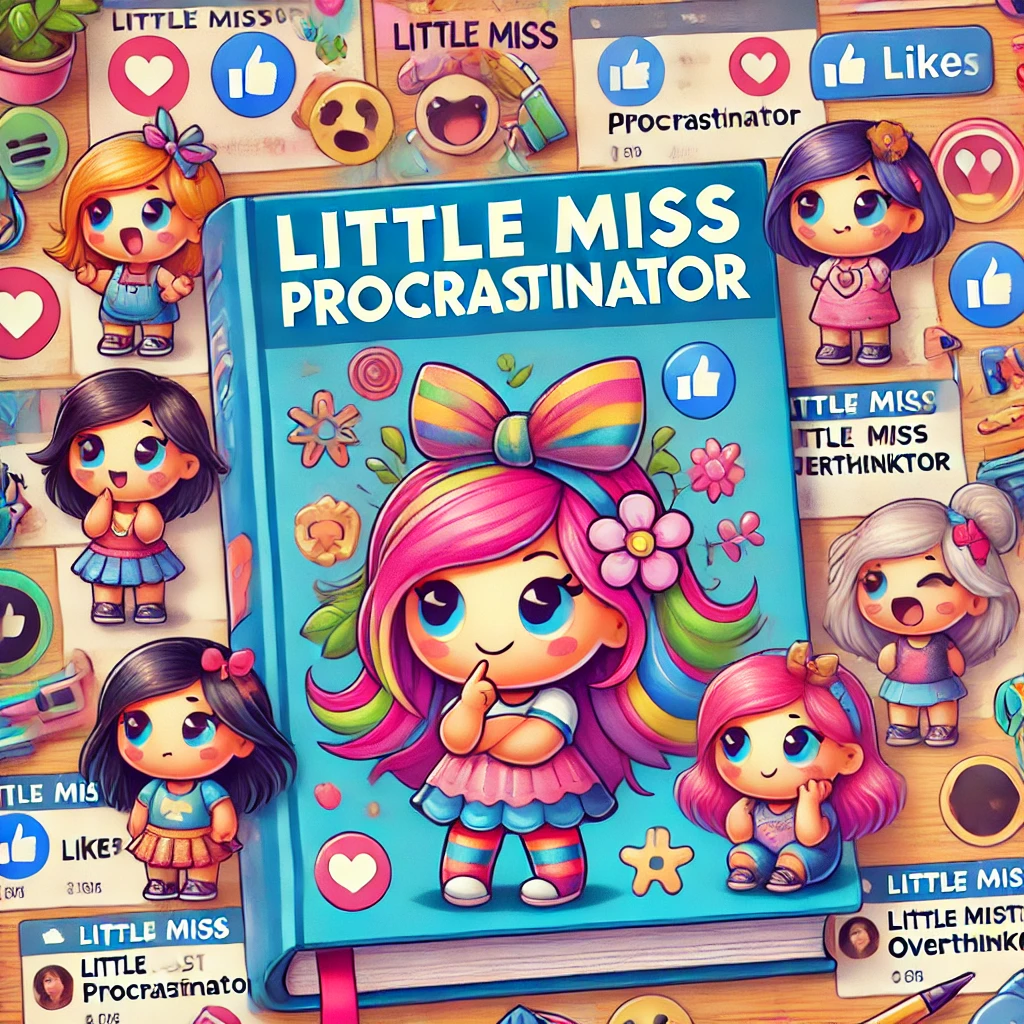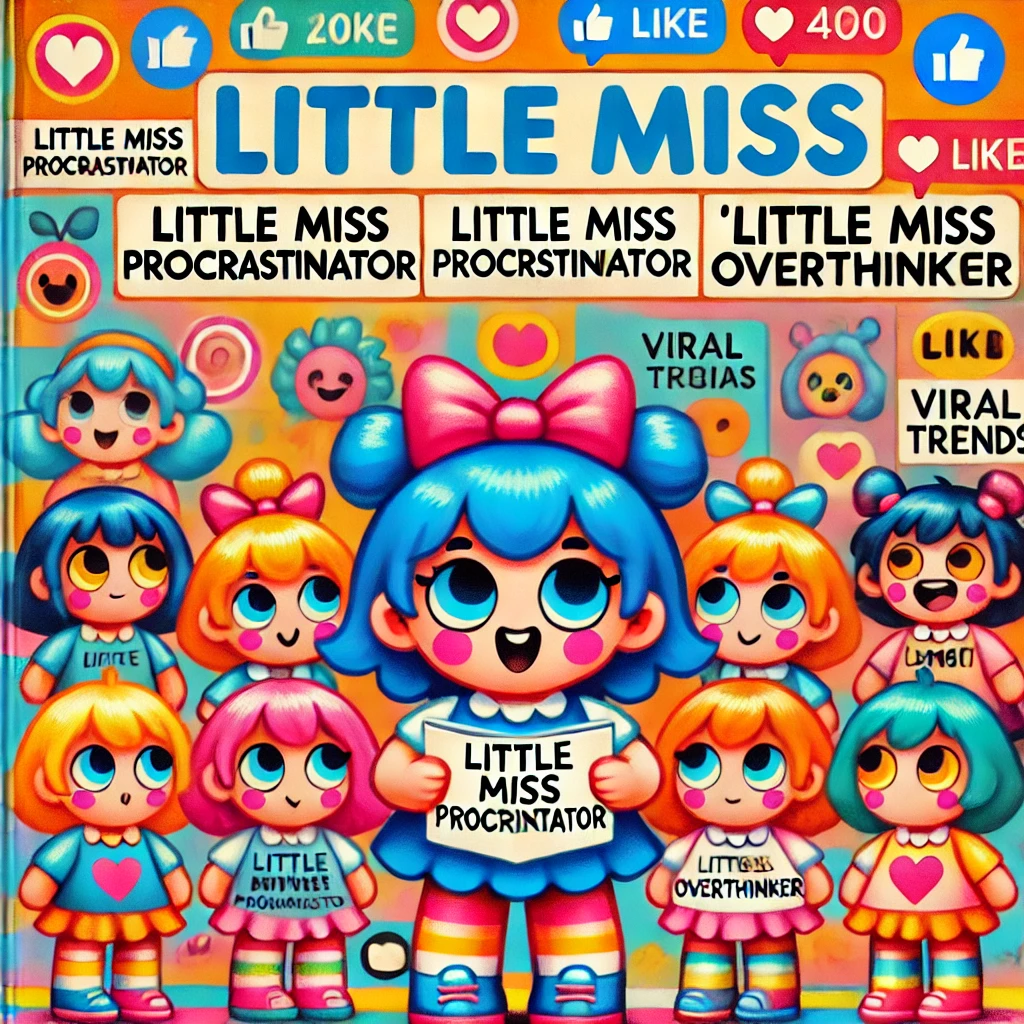Resources
Little Miss Memes: How Nostalgia and Humor Created a Viral Internet Trend

Little miss memes have taken the internet by storm, blending childhood nostalgia with relatable adult struggles in a way that resonates with millions. Originating from a beloved children’s book series, these memes have evolved into a cultural phenomenon, sparking conversations, creativity, and laughter across social media platforms. This article explores the rise, meaning, impact, and future of little miss memes in the online world.
What Are Little Miss Memes?
Little miss memes are a viral trend on social media that remix the iconic Little Miss book characters, created by Roger Hargreaves, into humorous, relatable depictions of modern behavior, quirks, and insecurities. Originally designed as cheerful, colorful characters teaching life lessons, the Little Miss franchise has been cleverly reimagined by meme creators who assign new, sometimes self-deprecating, labels to the familiar characters.
For example, you might see “Little Miss Overthinks Everything” or “Little Miss Can’t Commit” paired with the traditional cartoon style of a Little Miss character. These images instantly strike a chord, using humor to reveal common truths about ourselves and our modern-day problems.

The Origins of Little Miss
The Little Miss books, part of the larger Mr. Men series, began in the early 1970s thanks to British author Roger Hargreaves. Each story featured a character defined by a personality trait, like Little Miss Sunshine or Little Miss Naughty, helping children learn about emotions and behavior in a simple, colorful way. The illustrations, with their bold outlines and bright colors, were instantly memorable.
Fast forward to the 2020s, and these same friendly characters have become the basis of the little miss memes you see across Twitter, Instagram, and TikTok. This transformation highlights how the internet loves to remix familiar childhood media into something fresh and hilarious for a grown-up audience.
Why Little Miss Memes Went Viral
One of the main reasons little miss memes became so popular is their blend of nostalgia and self-awareness. People love reconnecting with something from their childhood, and the instantly recognizable Little Miss design makes that easy. By combining this nostalgia with a modern twist — ironically describing their flaws or issues — creators struck the perfect balance.
Social media thrives on relatability. When you see “Little Miss Cancelled Plans Again” and think, “That’s me!” you’re more likely to share, comment, or create your own. This self-identification is what made little miss memes spread like wildfire.
Popular Themes in Little Miss Memes
Little miss memes have evolved beyond simple jokes into reflections of our cultural moment. Some common themes you’ll see include:
- Mental health struggles: memes like “Little Miss Burnt Out” resonate with those dealing with stress or anxiety
- Relationship woes: “Little Miss Situationship” captures modern dating drama
- Personal habits: “Little Miss Always Late” pokes fun at everyday shortcomings
- Internet culture: “Little Miss Doomscrolling” speaks to our social media obsessions
These memes tap into shared experiences, making them instantly recognizable to a wide audience.
How Little Miss Memes Are Created
While little miss memes look simple, there’s an art to making them. Meme creators typically take an existing Little Miss illustration, digitally erase the character’s original name, and replace it with a new, relatable phrase using a font similar to the original. Tools like Photoshop or free design apps make it easy for anyone to join the trend and share their own funny takes.
Because the characters are so iconic, the edits rarely need much explanation. That’s part of the genius: the style itself does a lot of the storytelling.
The Psychology Behind Their Appeal
Humor has always helped people cope with their insecurities, and little miss memes are a perfect example. By framing personal struggles or flaws in a playful way, they help people feel less alone and less ashamed.
Psychologists often note that laughter can break down barriers and build empathy. So when you laugh at “Little Miss Overthinker,” you might be acknowledging your own issues while realizing you aren’t the only one who feels that way. It’s a shared cultural wink that brings comfort as well as a chuckle.
Little Miss Memes on TikTok and Instagram
While Twitter was one of the earliest places where little miss memes exploded, platforms like TikTok and Instagram Reels have since amplified the trend even further. Video creators remix the meme by narrating short skits or stories about their own “Little Miss” personas.
For example, a TikTok creator might say, “Welcome to my life as Little Miss Procrastinator,” and then show a comedic video montage of avoiding tasks. These personal touches make the meme even more interactive and help it evolve with the language of short-form video.
Little Miss Memes as Social Commentary
It’s not just about harmless jokes. Many little miss memes also carry a bite of social commentary. Creators use them to highlight serious issues, from mental health stigma to economic struggles. For example, “Little Miss Can’t Afford Rent” points to the challenges of today’s housing market, while “Little Miss Overworked” highlights burnout culture.
By framing these serious topics in a silly, approachable way, meme creators help start conversations that might otherwise be difficult to have. This is a big part of why little miss memes are so much more than just jokes — they serve as a mirror for modern society.
Brands and Marketing Adopting Little Miss Memes
Whenever a meme goes viral, brands try to get in on the action. Little miss memes are no exception. Companies have posted their own “Little Miss” variations to showcase their products, raise brand awareness, or poke fun at themselves.
For example, a food delivery app might share “Little Miss Can’t Cook” to reach busy young adults. While some branded memes land well, others can feel forced or out of touch. The most successful ones stay true to the humor and relatability that make the trend work in the first place.
Criticism and Controversy
Like many viral internet trends, little miss memes aren’t universally loved. Some critics argue they oversimplify complex personal struggles or trivialize mental health issues. Others feel the meme has become so widespread that it’s losing its originality and turning into meaningless noise.
It’s a fair point: once a meme becomes overly saturated, it can lose the spark that made it funny. Still, even with some backlash, little miss memes continue to thrive because their core idea is so flexible and personal.
How to Make Your Own Little Miss Meme
If you want to jump on the trend, making your own little miss memes is simple. Here’s how to get started:
- Choose a Little Miss character: find a high-quality image online
- Identify a relatable quirk: think of something personal or funny you want to highlight
- Edit the text: use a simple photo editor or a meme generator to change the name
- Share on social media: see if it resonates with your audience
Remember to be creative but also respectful — memes can be powerful, but they can also cross a line if they make light of truly serious trauma.
The Future of Little Miss Memes
Will little miss memes stick around? Probably, in some form. Meme culture is always evolving, but certain memes have surprising staying power, especially when they tap into childhood nostalgia. Just as Little Miss Sunshine has been in print for decades, little miss memes might continue to mutate and resurface in future internet cycles.
Their versatility is their greatest strength. People will always find new ways to laugh at themselves, and the Little Miss style provides an endlessly reusable canvas for that self-reflection.
How Little Miss Memes Connect Generations
What’s especially interesting is how little miss memes connect different age groups. People who grew up reading the books see a familiar face, while younger internet users discover them through viral trends. It creates a bridge between generations and a shared language of humor.
Parents might even use these memes to explain what they read as kids, creating a fun cultural loop that keeps the Little Miss characters relevant.
Lessons Learned from Little Miss Memes
If there’s one thing to take away from the rise of little miss memes, it’s that people crave authenticity. The best memes aren’t just random jokes — they speak to something deeply human, whether it’s our flaws, habits, or hopes.
By giving those feelings a playful name and a colorful face, little miss memes make self-examination feel lighter and more manageable. That’s an important lesson for creators and marketers alike: authenticity and relatability always win.
Final Thoughts
Little miss memes have proven themselves more than just another passing social media fad. They are a creative way for people to express their vulnerabilities, connect with others, and find humor in shared struggles. Even if their popularity fades over time, their impact on internet culture will be remembered as a perfect blend of nostalgia, creativity, and communal self-awareness.
As we look to the future of memes, the success of little miss memes shows there will always be room for playful, authentic ways to talk about the human experience.

-

 Resources4 years ago
Resources4 years agoWhy Companies Must Adopt Digital Documents
-

 Resources3 years ago
Resources3 years agoA Guide to Pickleball: The Latest, Greatest Sport You Might Not Know, But Should!
-

 Resources7 months ago
Resources7 months ago50 Best AI Free Tools in 2025 (Tried & Tested)
-

 Guides2 years ago
Guides2 years agoGuest Posts: Everything You Should Know About Publishing It

